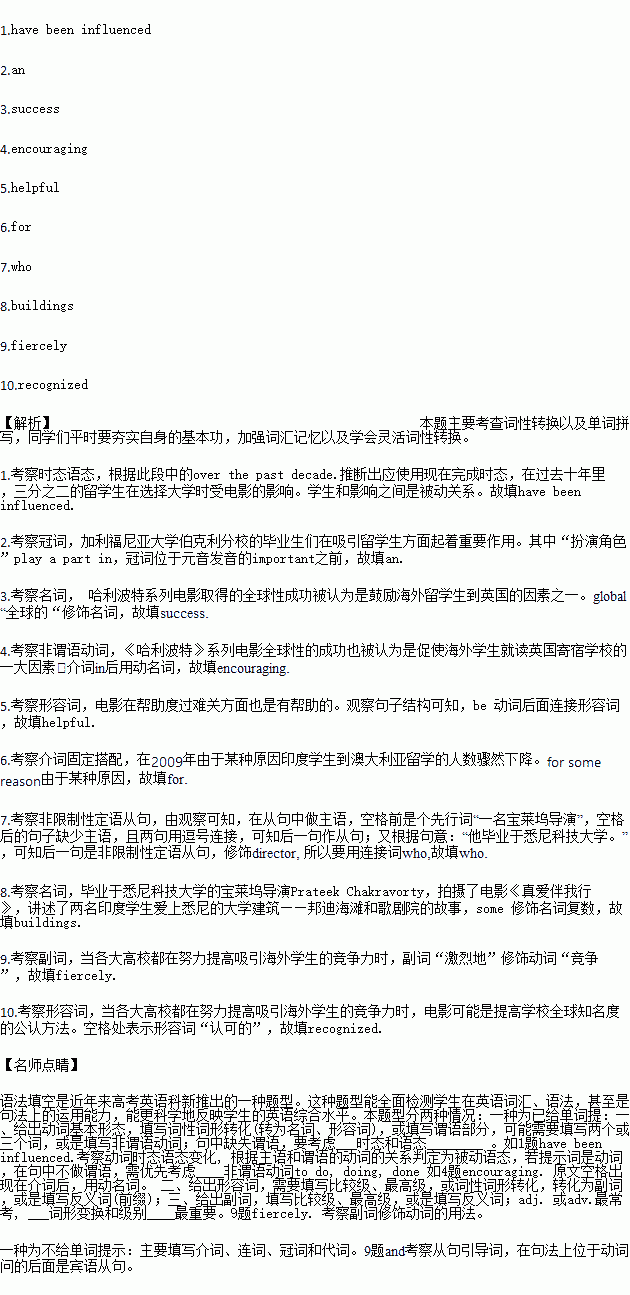题目内容
Studying abroad seems to be a global trend these days. A study suggests that more than two thirds of the students studying abroad 1.(influence) by movies in choosing their universities over the past decade. American movies such as A Beautiful Mind set in Princeton. The Social Network in Harvard, and The Graduate in Berkeley, California are playing 2. important part in attracting foreign students to America. The global3.(succeed) of the Harry potter films is considered as a factor in 4.(encourage) overseas students to come to England. Universities in New Zealand have benefited from The Lord of the Rings effect since it was first released.
Films can also be5.(help) to get through difficult situation. In 2009 there was a sharp decline in Indian students choosing Australian universities 6.some reasons So Prateek Chakravorty, a Bollywood director, 7. graduated from Universities of Technology Sydney, made From Sydney With Love about two Indian students falling in love with some of the 8.(building) of Sydney University. By 2014,the number of Indian students in Australia was rising again.
When universities are competing 9.(fierce) for the attention of overseas students, the cinema screen could be a 10.(recognize) way to attract overseas students. Will you pick universities because of Movies?
 应用题作业本系列答案
应用题作业本系列答案
